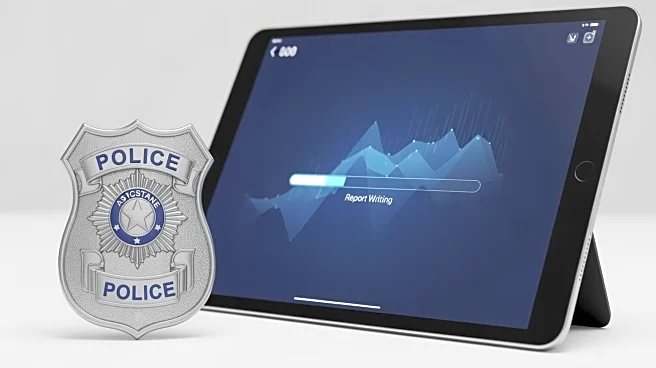What's Happening?
Police departments in Eagan and Brooklyn Park, Minnesota, are integrating artificial intelligence (AI) technology to assist officers in writing reports. This initiative aims to streamline administrative tasks, allowing officers to focus more on their
primary duties of protecting and serving the community. The use of AI in this context is part of a broader trend of incorporating technology into law enforcement to improve efficiency and effectiveness. However, the adoption of AI for report writing has sparked a debate, with some individuals expressing concerns that the technology might be overstepping its bounds.
Why It's Important?
The implementation of AI in police departments could significantly impact how law enforcement agencies operate across the United States. By reducing the time officers spend on paperwork, AI can potentially increase the time available for community engagement and crime prevention. This shift could lead to more proactive policing and improved public safety outcomes. However, the reliance on AI also raises questions about data privacy, accuracy, and the potential for technology to replace human judgment in critical situations. These concerns highlight the need for careful consideration and regulation as AI becomes more prevalent in public service sectors.
What's Next?
As AI technology continues to evolve, its role in law enforcement is likely to expand. Police departments may explore additional applications of AI, such as predictive policing and real-time data analysis, to enhance their operations. Stakeholders, including policymakers, civil rights groups, and the public, will need to engage in discussions about the ethical and practical implications of AI in policing. Ensuring transparency, accountability, and public trust will be crucial as these technologies are further integrated into law enforcement practices.
















